Best of Books 2018: My Choice
William Dalrymple | Tishani Doshi | Srinath Raghavan | Aatish Taseer | KR Meera | Arshia Sattar | Pratap Bhanu Mehta
 Nandini Nair
Nandini Nair
 Nandini Nair
Nandini Nair
 |
20 Dec, 2018
|
20 Dec, 2018
/wp-content/uploads/2018/12/BestofBooks1.jpg)
THIS HAS BEEN THE YEAR of the sneaky hit that arrives un- announced and takes all by surprise. Anna Burns’ Milkman (Faber & Faber) is perhaps the best example. She edged out obvious favourites like Rachel Kushner, author of The Mars Room, to win the Man Booker Prize. Born in Northern Ireland, Burns submerges readers into the psyche the first-person protagonist Middle sister, who is dating maybe-boyfriend. Bristling with the argot of the city and its Troubles, Milkman evokes the power of gossip and the pressure to conform in close-knit communities. The local site and its specifics tell of universal experiences, whether it is the ‘drip-drip effect of sexual comments’ or how easy and dangerous it is to ‘get stuck and be unable to get out of rumour’.
The other Irish (albeit not from Northern Ireland) writer who made her mark this year is the 27-year-old Sally Rooney with Normal People (Faber & Faber). Her debut novel Conversation with Friends (much of it was written over three months) was published just last year to rave reviews. In Normal People, Rooney proves that her debut was no fluke; rather, it is Act One of an author who is creating her own ‘new fiction’. Her latest novel, essentially a love-and-loss story of two youngsters over four years, reaffirms her reputation as a ‘psychological portraitist’. This isn’t a work of literary gooiness; instead, it has the precision of a surgeon’s knife. Marianne and Connell are millennial lovers, but their blundering through life, floundering with each other, self-knowledge and self-delusion make them classical heroes.
For me, the other unexpected gem of the year was Advice for Future Corpses (and Those Who Love Them): A Practical Perspective on Death and Dying (Touchstone) by Sallie Tisdale. As a writer, palliative-care nurse and Zen Buddhist, Tisdale is perhaps better equipped than most to write about issues of death and dying. This book is morbid, it details the mechanics of demise (maggots and all) with an unflinching and non-squeamish eye. But it also asks the most fundamental questions. What is a good death? How do we ensure that for our loved ones? Why is the medical world so woefully inadequate in providing it? It reminds us of essential truths that we fail to see and are afraid to reckon with: ‘The first and one of the hardest tasks of dying and caring for the dying is to accept that things will never be the same. Things will never be the same. The body will never be the same. Relationships will never be the same. Nothing will be the same as it was.’ Written with tenderness and wisdom, Advice for Future Corpses is disturbing, yet deeply rewarding.
The other wise book of the year is Godsong; A Verse Translation of the Bhagavad-Gita with Commentary (Viking) by Amit Majmudar. To those familiar with the Gita, this book might not be exceptional, but this translation can possibly introduce a new and younger generation of readers to it. As Majmudar writes, ‘The Gita imagined a relationship in which the soul and God are equals. It’s a relationship mostly missing from every other scripture: friendship.’
Julian Barnes’ The Only Story (Jonathan Cape), which released early this year, is another novel where Barnes is doing what Barnes does. But the thing is, he does it so damn well. Like his debut novel Metroland (1980), he dwells on suburban marriage, and how the flushes of first love are eventually subdued by inevitable disappointment. The setup is simple enough: 19-year-old Paul meets a 48-year-old Susan at a tennis club. The two fall in love. In the Man Booker prize-winning The Sense of an Ending, Barnes made clear his obsession with ageing; here again, the older man looking back at a younger self knows that in his youth, he often wondered, ‘What are the old for, if not to envy the young? That seemed to me their principal and final purpose before extinction.’ Only Barnes can deliver such lyrical cruelty. But the standout line for me explains the purpose of so much literature: ‘Perhaps love could never be captured in a definition; it could only ever be captured in a story.’
William Dalrymple, Author
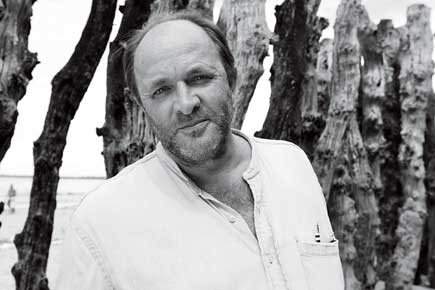 Manaku of Guler: The Life and Work of Another Great Indian Painter from a small Hill State (Niyogi Books), by India’s leading art historian, BN Goswamy, accompanied an exhibition in Chandigarh and has completed Goswamy’s lifetime of labour researching the most talented of all the families of artists at work in India in the 18th century. The book closes a diptych that he opened two decades ago with the publication of a sister volume, Nainsukh: A Great Indian Painter from a Small Hill State (Niyogi Books). The pleasure of reading Goswany’s Manaku derives in part from discovering the extraordinary painting of this forgotten genius, as he brings into visual form some of the most subtle of Indian philosophical texts, but equally in Goswamy’s close reading of the images and the sheer amount of information he manages to wring out of these silent images.
Manaku of Guler: The Life and Work of Another Great Indian Painter from a small Hill State (Niyogi Books), by India’s leading art historian, BN Goswamy, accompanied an exhibition in Chandigarh and has completed Goswamy’s lifetime of labour researching the most talented of all the families of artists at work in India in the 18th century. The book closes a diptych that he opened two decades ago with the publication of a sister volume, Nainsukh: A Great Indian Painter from a Small Hill State (Niyogi Books). The pleasure of reading Goswany’s Manaku derives in part from discovering the extraordinary painting of this forgotten genius, as he brings into visual form some of the most subtle of Indian philosophical texts, but equally in Goswamy’s close reading of the images and the sheer amount of information he manages to wring out of these silent images.

Patrick Leigh Fermor was a soaring prose virtuoso with hardly an equal in his generation. The letters Adam Sisman has gathered in More Dashing (Bloomsbury) are flirty, funny, lively and revealing. A few bring to mind his extravagant, generous, witty, meandering style of conversation; others show his magpie mind; the best contain some of the finest descriptive writing he ever committed to paper. Sisman should be congratulated on this feat of literary archaeology and for excavating for Paddy’s fans a last treasure trove of Leigh Fermor prose.
In Empire of Enchantment: the Story of Indian Magic (Hurst) John Zubrzycki has found the most wonderful story— the sort all writers look for and long for—and told it brilliantly. This is—quite literally—a book of marvels.
We seem to have a small revolution taking place in the genre of well-written narrative Indian history. I loved Ira Mukhoty’s book on Mughal women Daughters of the Sun: Empresses and Begums of the Mughal Empire (Aleph), Ruby Lal’s Empress: The Astonishing Reign of Nur Jahan (Viking) and Manu S Pillai’s minutely researched yet instantly accessible and readable Rebel Sultans (Juggernaut) which will bring the fascinating history of medieval India to a whole new generation of readers. But a particular pleasure this month has been a debut work of biography by Parvati Sharma, Jahangir: An Intimate Portrayal of a Great Mughal (Juggernaut). Her stylishly and enjoyably discursive retelling of the life of Jahangir is thoughtful and psychologically penetrating. It strips away the glitter and glamour of the Mughal court to reveal a deftly sketched portrait of Jahangir the man, in all his hedonism, inquisitiveness, refinement and intelligence.
Tishani Doshi, Author and dancer
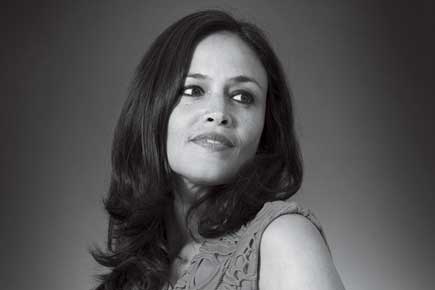
 Four books made me think about what it means to be a woman and an artist in the world: Anuradha Roy’s All the Lives We Never Lived (Hachette), which has one of the most beguiling openings of a novel, and holds all the heartbreak and headiness of a life lived away from the centre with the delicacy and grace that has become Roy’s trademark; Fiona Sampson’s exceptionally realised biography, Mary Shelley: In Search of the Girl Who Wrote Frankenstein (Profile Books), which shows us that MeToo might have arrived but the female muse is as problematic and riddled with double standards as it was 200 years ago; Pascale Petit’s haunting collection of poems that deal with her mother’s illness, Mama Amazonica (Bloodaxe), imagines a psychiatric ward in the rainforest, and does what all poetry dreams of doing—turn the wound into a feast, the trauma into a blossoming; and the second of Deborah Levy’s living biographies, The Cost of Living (Bloomsbury), which explores the death of her mother and the disintegration of a 20-year-old marriage, all while being sharp, funny, universal and brilliant as hell, as is everything Levy writes. Also: Fatima Bhutto’s The Runaways (Viking) surprised and eviscerated me. I read it in a blaze of surrender.
Four books made me think about what it means to be a woman and an artist in the world: Anuradha Roy’s All the Lives We Never Lived (Hachette), which has one of the most beguiling openings of a novel, and holds all the heartbreak and headiness of a life lived away from the centre with the delicacy and grace that has become Roy’s trademark; Fiona Sampson’s exceptionally realised biography, Mary Shelley: In Search of the Girl Who Wrote Frankenstein (Profile Books), which shows us that MeToo might have arrived but the female muse is as problematic and riddled with double standards as it was 200 years ago; Pascale Petit’s haunting collection of poems that deal with her mother’s illness, Mama Amazonica (Bloodaxe), imagines a psychiatric ward in the rainforest, and does what all poetry dreams of doing—turn the wound into a feast, the trauma into a blossoming; and the second of Deborah Levy’s living biographies, The Cost of Living (Bloomsbury), which explores the death of her mother and the disintegration of a 20-year-old marriage, all while being sharp, funny, universal and brilliant as hell, as is everything Levy writes. Also: Fatima Bhutto’s The Runaways (Viking) surprised and eviscerated me. I read it in a blaze of surrender.
Srinath Raghavan, Historian
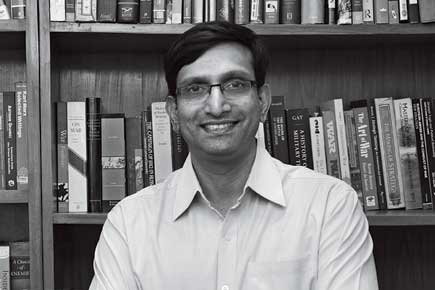
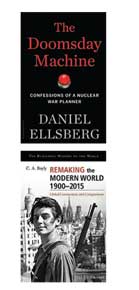 Jurgen Osterhammel’s Unfabling the East (Princeton University Press) is a formidably erudite account of Europe’s cultural encounters with Asia in the 18th century. As Asia moves to the centre of world politics, this is essential historical reading. Ulrich Raulff’s Farewell to the Horse (Liveright) is a fascinating and original work on the horse in human history— one that recasts our understanding of modernity. The late Chris Bayly’s Remaking the Modern World 1900-2015 (Wiley-Blackwell) is the sequel to his acclaimed global history of the 19th century and a posthumous reminder of what made his work so extraordinary. Ramachandra Guha’s Gandhi: The Years that Changed the World (Allen Lane) is an amazingly researched historical biography that portrays his subject on the global canvas of first half of the 20th century.
Jurgen Osterhammel’s Unfabling the East (Princeton University Press) is a formidably erudite account of Europe’s cultural encounters with Asia in the 18th century. As Asia moves to the centre of world politics, this is essential historical reading. Ulrich Raulff’s Farewell to the Horse (Liveright) is a fascinating and original work on the horse in human history— one that recasts our understanding of modernity. The late Chris Bayly’s Remaking the Modern World 1900-2015 (Wiley-Blackwell) is the sequel to his acclaimed global history of the 19th century and a posthumous reminder of what made his work so extraordinary. Ramachandra Guha’s Gandhi: The Years that Changed the World (Allen Lane) is an amazingly researched historical biography that portrays his subject on the global canvas of first half of the 20th century.
Freeman Dyson’s Maker of Patterns (Liveright) is a wonderful collection of letters written to his family and an arresting panorama of the cultural and political contexts in which 20th century physics flourished. Ian Buruma’s A Tokyo Romance (Penguin) is a sparky memoir of Japan’s counter- cultural scene in the 1970s. It challenges many of our assumptions about post-war Japan. Daniel Ellsberg’s The Doomsday Machine (Bloomsbury) is a sharp account of his experiences as a consultant on US nuclear weapons systems and plans in the 1960s—and a useful reminder of dangers that they continue to pose in the 21st century. In a profusion of books about the ‘crisis of democracy’, Adam Przeworksi’s Why Bother with Elections? (Polity) stood out for its tough-minded take on what we can and cannot expect from electoral democracy.
The Ropewalker and A People without a Past (Quercus) are the first two volumes of the English translation of a trilogy by the great Estonian novelist Jaan Kross. Set in Livonia (Latvia and Estonia) in the 16th century, the novels track the life of Balthasar Russow, who rose from obscurity to become an envoy for Livonia at a time of great power rivalry over the region and went on to chronicle the history of the Baltics from a people’s perspective. I haven’t read a subtler work of historical fiction in years and I can’t wait to read the final volume due out in early 2019.
Aatish Taseer, Author
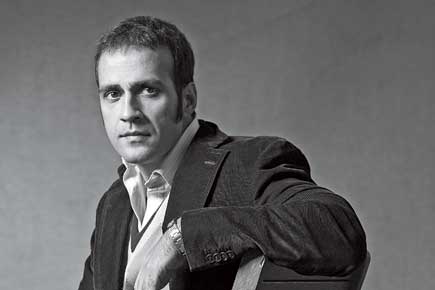 THE ORDER OF THE DAY BY Eric Vuillard (Other Press): ‘It’s strange how the most dyed-in- the-wool tyrants still vaguely respect due process, as if they want to make it appear they aren’t abusing procedure, even while riding roughshod over every convention.’ Sounds familiar? I loved this strange novelistic essay, which is about two seminal moments in the rise of Hitler and won this year’s Prix Goncourt. It represents yet another horizon for how utterly unplaceable and inventive the novel can be.
THE ORDER OF THE DAY BY Eric Vuillard (Other Press): ‘It’s strange how the most dyed-in- the-wool tyrants still vaguely respect due process, as if they want to make it appear they aren’t abusing procedure, even while riding roughshod over every convention.’ Sounds familiar? I loved this strange novelistic essay, which is about two seminal moments in the rise of Hitler and won this year’s Prix Goncourt. It represents yet another horizon for how utterly unplaceable and inventive the novel can be.
Kudos by Rachel Cusk (Faber & Faber): I offer this somewhat reluctantly, as it’s not nearly as good as Transit, which in turn was less good than Outline. But when you’re as good a writer as Cusk, even your lesser work ends up better than most people’s best. Consider this line, which must be the best definition of what it is to be middle brow: ‘What all publishers were looking for, he went on—the holy grail, as it were, of the modern literary scene—were those writers who performed well in the market while maintaining a connection to the values of literature; in other words, who wrote books that people could actually enjoy without feeling in the least demeaned by being seen reading them.’

Into the Hands of the Soldiers by David Kirkpatrick (Bloomsbury): I’m going to Egypt at the end of the year, and this was homework, which turned out to be a wonderful treat. Like Philip Gourevitch’s book on the Rwandan genocide, this is a riveting account of the abortive Arab Spring in Egypt. ‘We failed to bear witness,’ one character says, ‘Ethics is our capital. When that is lost, you have nothing. You forget who you are. You can drown yourself in alcohol, or Xanax, or whatever you want. But this thing will keep haunting you…’ As does this book, which tries, like Notes on a Foreign Country, to awaken a sense in Americans of their responsibility abroad.
Rebel Sultans: The Deccan from Khilji to Shivaji (Juggernaut) by Manu S Pillai: I found this book on the Deccan to be full of interest. Hinduraya Suratrana, or Sultan among Hindu Kings, Pillai tells us, ‘was the first time Indian rulers applied the term “Hindu” to distinguish themselves from Muslims of foreign origins—in other words, a geographical term applied to Indians in general by outsiders was now internalized.’ It is for moments such as these that we must keep returning to the history of the Deccan, for it is one of our truest fault lines. It is a place where one can see, writ small, the Naipaulian observation that ‘to awaken to history was to cease to live instinctively. It was to begin to see oneself and one’s group the way the outside world saw one; and it was to know a kind of rage.’
Asymmetry by Lisa Halliday (Granta Books): This is not the best book of 2018. It is not even the best book of a single month, or a single week, in 2018. In fact it is a tawdry little book that has been given undue importance. Why? Well, for the same reason that it is on my list of the best books of 2018. It is about fucking Philip Roth, and who is so high minded as not to want to read that? Not me. Read it in two sittings on the loo, and let’s never mention it again!
KR Meera, Author
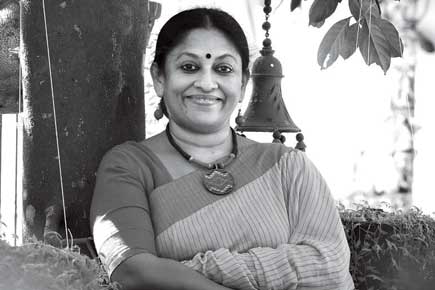
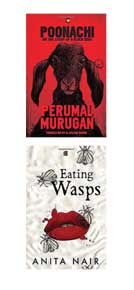 Poonachi by Perumal Murugan (Context): Skilfully written (and excellently translated by N Kalyan Raman) with a goat as the protagonist, this political novel explores the idea of freedom, power and greed. Eating Wasps by Anita Nair (Context): Even after you close this complex novel connecting disconnected lives, it keeps hurting like inflamed flesh that still has the wasp’s sting intact as it narrates the lives of women who when forced to eat a wasp when it flies into their mouths do not care to wait for time to heal their injuries. Rebel Sultans by Manu S Pillai (Juggernaut): As fascinating as his first book The Ivory Throne, this story of the Deccan from the 13th century is as readable as a grand book of fiction. 13 Years: A Naxalite’s Prison Diary by Ramchandra Singh (Navayana): This memoir is dispassionately and candidly written.
Poonachi by Perumal Murugan (Context): Skilfully written (and excellently translated by N Kalyan Raman) with a goat as the protagonist, this political novel explores the idea of freedom, power and greed. Eating Wasps by Anita Nair (Context): Even after you close this complex novel connecting disconnected lives, it keeps hurting like inflamed flesh that still has the wasp’s sting intact as it narrates the lives of women who when forced to eat a wasp when it flies into their mouths do not care to wait for time to heal their injuries. Rebel Sultans by Manu S Pillai (Juggernaut): As fascinating as his first book The Ivory Throne, this story of the Deccan from the 13th century is as readable as a grand book of fiction. 13 Years: A Naxalite’s Prison Diary by Ramchandra Singh (Navayana): This memoir is dispassionately and candidly written.
Arshia Sattar, Author and translator
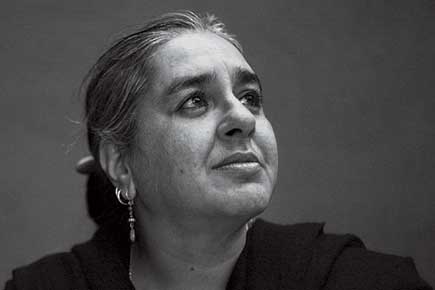
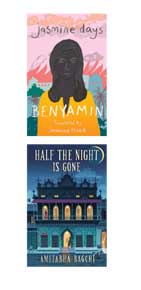 As a young South Asian girl and her extended family get caught up in the cataclysmic fissures of an Arab Spring, Jasmine Days by Benyamin (Juggernaut) turns an unflinching gaze onto the people who made the revolution and those who opposed it. Through the turbulence on the streets and consequently within the family, Benyamin nudges the reader towards critical moral questions of our times. He looks into both the dark heart of violence and the silenced soul of humanity that bears witness to it. Amitabha Bagchi’s deceptively easy prose allows the reader to drift slowly into Half the Night is Gone (Juggernaut), which feels like a dream. Its world, though small, is lush and hints at stories beyond the ones that are being told. Its characters are familiar, but remain just slightly out of reach. Beyond these unusual and delicate pleasures, the novel’s real genius lies in how gently Bagchi shares his passion for Tulsi’s Ramcharitmanas such that it becomes the touchstone of love, truth and beauty for all the relationships in the book.
As a young South Asian girl and her extended family get caught up in the cataclysmic fissures of an Arab Spring, Jasmine Days by Benyamin (Juggernaut) turns an unflinching gaze onto the people who made the revolution and those who opposed it. Through the turbulence on the streets and consequently within the family, Benyamin nudges the reader towards critical moral questions of our times. He looks into both the dark heart of violence and the silenced soul of humanity that bears witness to it. Amitabha Bagchi’s deceptively easy prose allows the reader to drift slowly into Half the Night is Gone (Juggernaut), which feels like a dream. Its world, though small, is lush and hints at stories beyond the ones that are being told. Its characters are familiar, but remain just slightly out of reach. Beyond these unusual and delicate pleasures, the novel’s real genius lies in how gently Bagchi shares his passion for Tulsi’s Ramcharitmanas such that it becomes the touchstone of love, truth and beauty for all the relationships in the book.
Pratap Bhanu Mehta, Political scientist and essayist

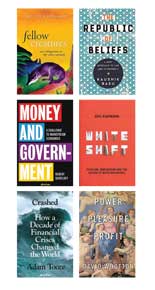 IN AN AGE WHERE there appears to be more excellent books than there are ideal readers, it is hard to single out a few. But here are a few provocative ones. David Wootton’s Power, Pleasure and Profit: Insatiable Appetites from Machiavelli to Madison (Harvard University Press) was an absolute joy to read. It is scholarly and irreverent at the same time and sheds fresh light on a familiar question: How did power, profit and pleasure, come to be legitimised. Kaushik Basu’s The Republic of Beliefs: A New Approach to Law and Economics (Princeton University Press) tackles the most difficult question: What explains the institution and persistence of norms? He has a provocative answer. It is a book that makes you think. Christine Korsgaard’s Fellow Creatures: Our Obligations to the Other Animals (Oxford University Press) is a rigorous, elegant and fresh take on a thorny moral question and an example of the power of analytic philosophy. On global trends, Eric Kaufman’s WhiteShift: Populism, Immigration and the Future of White Majorities (Allen Lane) makes a provocative argument on the origins of populism. Adam Tooze’s Crashed (Allen Lane) is a tour de force history of the financial crisis; and Robert Skidelsky’s Money and Government (Penguin Press) tries to open up space for a new macroeconomics in the wake of that crisis.
IN AN AGE WHERE there appears to be more excellent books than there are ideal readers, it is hard to single out a few. But here are a few provocative ones. David Wootton’s Power, Pleasure and Profit: Insatiable Appetites from Machiavelli to Madison (Harvard University Press) was an absolute joy to read. It is scholarly and irreverent at the same time and sheds fresh light on a familiar question: How did power, profit and pleasure, come to be legitimised. Kaushik Basu’s The Republic of Beliefs: A New Approach to Law and Economics (Princeton University Press) tackles the most difficult question: What explains the institution and persistence of norms? He has a provocative answer. It is a book that makes you think. Christine Korsgaard’s Fellow Creatures: Our Obligations to the Other Animals (Oxford University Press) is a rigorous, elegant and fresh take on a thorny moral question and an example of the power of analytic philosophy. On global trends, Eric Kaufman’s WhiteShift: Populism, Immigration and the Future of White Majorities (Allen Lane) makes a provocative argument on the origins of populism. Adam Tooze’s Crashed (Allen Lane) is a tour de force history of the financial crisis; and Robert Skidelsky’s Money and Government (Penguin Press) tries to open up space for a new macroeconomics in the wake of that crisis.
Also Read
Best of Books 2018: Editor’s Choice
Best of Books 2018: Crime Fiction
Best of Books 2018: Poetry
Best of Books 2018: Politics

/wp-content/uploads/2025/05/Cover-War-Shock-1.jpg)



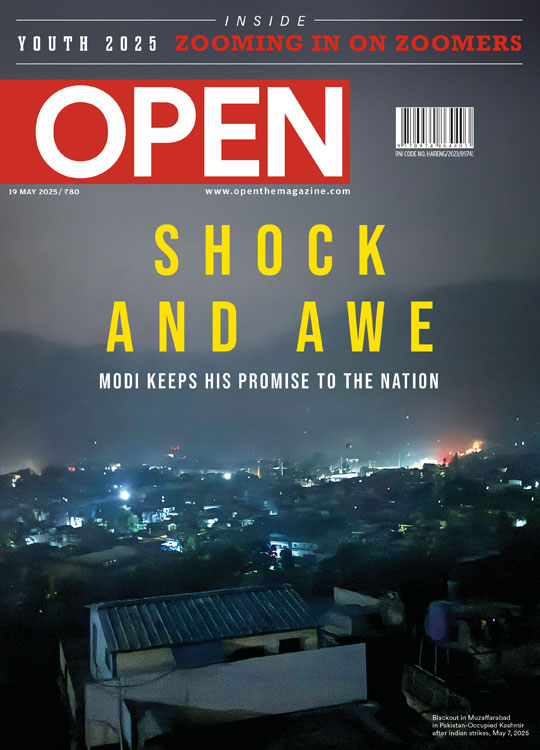

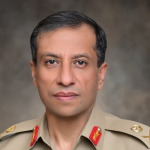


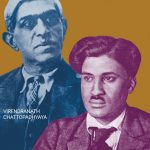
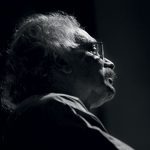

More Columns
Kerala’s Tryst with the Nipah Virus Open
The secret that Pak military spokesperson wants to hide: Dad’s loyalty for Bin Laden Open
India hammers Pak air bases at Rafiqui, Murid, Chaklala, and Rahim Yar Khan in a show of unflinching force Open